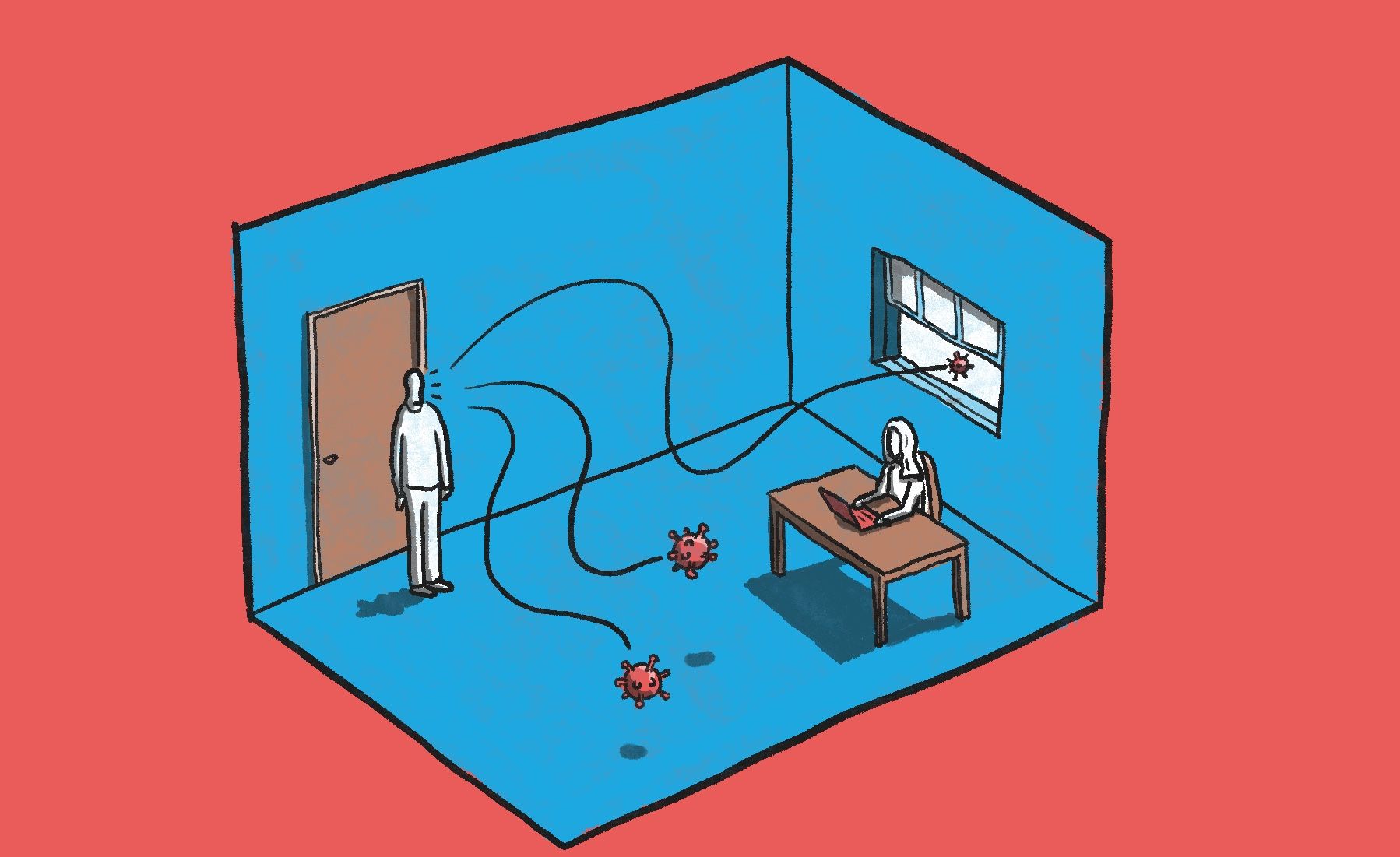Latest
Scientists around the world have been working tirelessly to understand and reduce the spread of COVID-19. So what is an epidemiology model and how can it help us?
Recently
Staying safe as COVID-19 restrictions lift
At Moai, our research explores COVID-19 transmission vectors to help us understand how we can best use non-pharmaceutical interventions (NPIs) to prevent disease propagation. Our researchers have designed a survey which aims to gain valuable insights from users of our contact tracing app about the environments they visit.
What’s air conditioning got to do with COVID-19?
By now, we are used to making adjustments to help prevent the spread of COVID-19. But how does air flow come into the equation and how can we use information about the airflow in venues to mitigate risk?
Where are the most dangerous places to be during COVID-19?
Stats can show us the death rate in various countries around the world, but the discussion around the venues causing COVID-19 hotspots continues…
What if a COVID-19 vaccine doesn’t work?
If other viruses are anything to go by, we may not be able to rely on a vaccine to eradicate COVID-19. But how likely is it that we won’t find a workable vaccine? And how else can we manage coronavirus?
The global effort to produce a vaccine
November saw something of a breakthrough in the fight against COVID-19. But are we likely to reach a point soon where the coronavirus is under control?
How privacy tech can help beat COVID-19
As various approaches are proposed and tested for tracing the spread of the virus, how can we lower risks without demolishing privacy?
Enabling vital research while protecting privacy
Research into COVID-19 is vital, but how can we carry it out without compromising individual privacy? Moai has the answer.
Why Bluetooth is not the best approach to contact tracing
Bluetooth is a common feature of the apps launched to track the spread of COVID-19 around the world. But it has several pitfalls...
An introduction to the Moai app
Discover a smarter, more secure approach to contact tracing with innovative technology from Moai.
Meet the Moai team
Moai has been built to deliver a secure track and trace solution that keeps people safe without compromising on privacy.
Technology versus the nanny state
Data from GlobalWebIndex shows that fear of the government having access to personal information is greater than the fear of private business
The year Mickey Mouse caught COVID-19?
As contact tracing apps rely heavily on user-inputted data, how can we ensure the accuracy of the results… and stop the disease spreading?
How to avoid a data scandal at your premises
As the hospitality industry tries to keep itself afloat during COVID-19, how can you make sure you’re complying with relevant regulations, and not risking getting into hot water?
COVID-19: Privacy-respecting alerts
We spent the last few weeks designing a neutral, auditable, and remotely verifiable service, to help public agencies accomplish this goal. When a user reports as infected, the encrypted service will securely reconcile data from all sources, and each source will be able to inform users via their app.
COVID-19: A welcome effort from Apple and Google
To prevent the spread of the COVID-19, we have explored Bluetooth-based contact-tracing techniques. Other solutions based on GPS, antenna towers or local wifi triangulation, are not precise or reliable enough.
COVID-19: The critical role of authorities
We can help increase the impact by bridging authorities' data internationally, in the case of an infected user crossing a border. With the consent of the user, we can forward pseudonymised identifiers to all relevant authorities.
COVID-19: Some privacy concerns
Companies such as health and life insurance or mortgage dealers, in the absence of available science, may start relying on worst-case assumptions and start discriminating against infected people. The identities of infected people must remain private to avoid this risk.
COVID-19: Our privacy-preserving proposition
Our primary focus is to build a service compatible with Apple & Google design, and get it running. We are also adding functionalities to our service to support this alternative design.
COVID-19: Improved authority bridging: maximised impact
Watching the various efforts currently made by the community and carefully reviewing the advantages and pitfalls of each, we feel that we are now close to a comprehensive final proposal and expect to release our technical paper soon.
COVID-19: Bluetooth-tracing and distance measures
Measuring distance is a challenge. Bluetooth signal is attenuated with distance, but there are hundreds of different devices, designs, and antennas. A device 5 meters away can have a stronger signal than another one just 2 meters away. To this, we see added complexity due to reverberation and interferences.
COVID-19: Bridging health services
Over the last few weeks, we have been actively working on finding the best way of confirming infections.
COVID-19: Vaccine trial and mobile application
Today, we reached two significant milestones. The first one is not related to our contact-tracing service: human trial of a COVID-19 vaccine, led by Oxford, Bristol, London and Southampton universities, has started.
COVID-19: Extending automated tracing with manual tracing
We believe we can provide the extension to Bluetooth contact-tracing that will fill the gaps, reliably warning people of their risk without revealing the source of the risk.
COVID-19: Centralised, decentralised, or both?
Secretarium uses secure hardware to protect data even from someone with physical access to the machine. Data is encrypted and secure at all times; network transfer is encrypted; memory is encrypted; even CPU caches are encrypted.





















